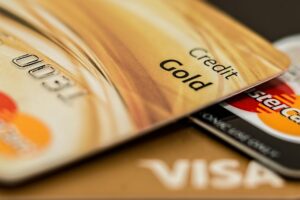The Importance of Emergency Funds and How to Build One
Life is unpredictable, and emergencies often arise when you least expect them. Whether it’s an unexpected medical bill, a sudden job loss, or a major home repair, having a financial cushion can mean the difference between a minor inconvenience and a full-blown financial crisis. This is where an emergency fund comes in. But what exactly is an emergency fund, and why is it so important? More importantly, how do you go about building one? Let’s dive in.
What is an Emergency Fund?
An emergency fund is a dedicated pool of savings set aside specifically for unexpected expenses. It is meant to cover urgent, unforeseen costs without derailing your financial stability. Unlike general savings, which might be earmarked for vacations or major purchases, an emergency fund is solely for situations that catch you off guard—like medical emergencies, car repairs, or sudden unemployment.
Why is an Emergency Fund Important?
There are several compelling reasons why an emergency fund is crucial for your financial well-being:
1. Prevents Debt Accumulation
Without an emergency fund, many people turn to credit cards, personal loans, or payday loans when unexpected expenses arise. These forms of debt often come with high interest rates, which can quickly spiral out of control. An emergency fund helps you avoid accumulating debt
 when life throws you a curveball.
when life throws you a curveball.
2. Reduces Financial Stress
Financial emergencies can be emotionally overwhelming. The fear of not being able to pay for essential needs can take a toll on your mental health. Having an emergency fund provides peace of mind, knowing that you’re financially prepared for the unexpected. It’s easier to focus on resolving the issue when you’re not panicking about money.
3. Maintains Financial Stability
When an emergency hits, it’s all too easy to dip into funds intended for long-term goals like retirement or buying a house. This can set you back years in your financial planning. An emergency fund ensures that your other financial goals stay on track, even when faced with sudden expenses.
4. Increases Flexibility During Life Changes
Whether it’s switching jobs, moving to a new city, or starting a family, life is full of transitions. An emergency fund gives you the flexibility to make these changes without worrying about financial instability. It acts as a buffer, allowing you to navigate life’s transitions more smoothly.
How Much Should You Save in an Emergency Fund?
A common recommendation is to save three to six months’ worth of living expenses in your emergency fund. This includes necessities like rent or mortgage payments, utilities, groceries, transportation, and insurance. If you have dependents or a particularly unstable job, consider saving even more—up to a year’s worth of expenses.
However, the exact amount can vary based on your individual situation. For example, dual-income households or those with very stable jobs might feel comfortable with a smaller emergency fund, while self-employed individuals or those in volatile industries may opt for a more substantial cushion.
Steps to Build an Emergency Fund
Building an emergency fund may seem daunting, but it can be achieved through a systematic approach. Here’s how to start:
1. Set a Realistic Goal
Begin by setting a savings goal based on your monthly expenses. If your target is to save three months’ worth of expenses and your monthly costs are $2,500, aim to save $7,500. A clear goal makes the task more tangible and achievable.
2. Create a Budget
To build an emergency fund, you need to free up some money within your budget. Track your income and expenses to identify areas where you can cut back. This could mean dining out less frequently, canceling unused subscriptions, or limiting non-essential purchases.
3. Automate Your Savings
One of the simplest ways to build an emergency fund is through automation. Set up an automatic transfer from your checking account to your emergency fund every payday. Whether it’s $50 or $200, automated transfers make it easier to save consistently.
4. Start Small and Increase Over Time
If saving a full three to six months’ worth of expenses feels overwhelming, start with a smaller goal—such as saving $1,000. Once you hit that milestone, gradually work toward your larger target. The key is to begin, even if it’s with small amounts.
5. Make Extra Income Work for You
Look for opportunities to boost your income. This could involve taking on side gigs, selling unused items, or providing freelance services. Any extra income generated can be directed toward building your emergency fund faster.
6. Keep Your Emergency Fund Separate
It’s essential to keep your emergency fund separate from your regular checking or savings account. Ideally, place it in a high-yield savings account where it can earn some interest but remains easily accessible in case of an emergency. This separation helps avoid the temptation to dip into the fund for non-emergency expenses.
When Should You Use Your Emergency Fund?
An emergency fund should be reserved for true emergencies, not for routine expenses or discretionary spending. Here are appropriate scenarios to tap into your fund:
-
Job Loss: If you lose your primary source of income, your emergency fund can help cover essential living expenses during job searching.
-
Medical Emergencies: Unexpected medical bills that aren’t fully covered by insurance may require using your emergency savings.
-
Car or Home Repairs: Major repairs that are essential for daily living may necessitate dipping into your emergency fund.
-
Family Emergencies: Unforeseen travel or costs due to family crises can warrant the use of your emergency savings.
The key is to use your fund sparingly and to replenish it as soon as possible after tapping into it.
Conclusion
An emergency fund is a vital component of financial planning that provides a safety net in times of need. It can help you avoid debt, reduce stress, and maintain financial stability when life throws unexpected expenses your way. By setting realistic goals, creating a budget, and automating your savings, you can build an emergency fund that will protect you during tough times.
Remember, the peace of mind that comes from having an emergency fund is priceless. Start building yours today, and you’ll be prepared for whatever financial challenges come your way. In a world full of uncertainties, being equipped with an emergency fund is one of the best gifts you can give yourself and your future.





